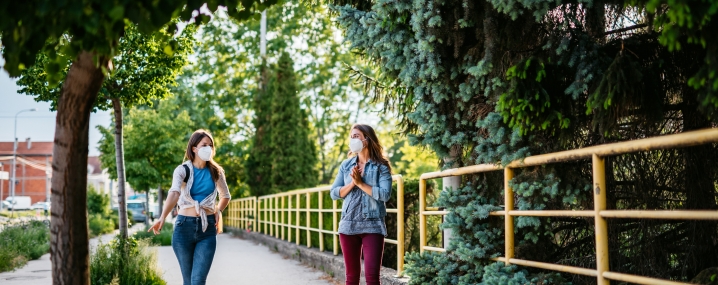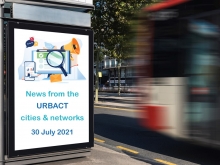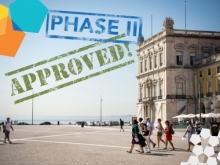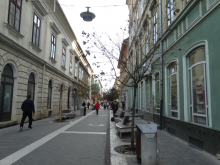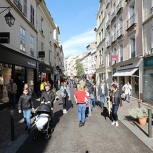
Saint-Germain-en-Laye
Saint-Germain-en-Laye has a total population of 45 979 inhabitants and a surface of 51.67 km² including 36.93 km² of state-owned forest. It is the capital of a 550 000 people district, in the department of Yvelines. Its historic sector with outstanding buildings bordering narrow paved streets is animated by (nearly 800) varied small and medium sized shops, workshops and several cultural ventures (theatre, museums, exhibition halls, art centres, cinemas). The intensive commercial activity of the city-centre is reinforced by a cluster of enterprises specialised on geo-localisation and by the reputation of the city as a health territory (exceptional natural conditions and numerous health centres).
Furthermore, Saint-Germain-en-Laye distinguishes itself by its large number of expats (15% of its population, mostly from Europe) and education institutions (a Sciences Po campus and about 20 high schools). Among those is the International School which boasts 14 sections (American, English, Dutch, Swedish, Danish, Norwegian, Polish, Italian, Russian, Chinese, Spanish, German, Portuguese, Japanese), making it a unique facility in France. The European identity is enforced by the presence and intensive activity of the House of Europe (the only one in Ile de France focusing on operational activities, besides the one in Paris having a more pronounced representation and administrative role), as well as by its twinning partnerships with Aschaffenburg (Germany), Ayr (UK), Sorrento (Italy) and Winchester (USA).
Saint-Germain is well connected to Paris by RER A (trains every 10 minutes for a 20 minutes ride to La Défense and a 25 minutes one to Etoile), and also easily accessible by road. By the end of 2021 the transport offer will be enriched through the inauguration of a new tram-train (T13) accompanied by a bike track all along and linking Saint-Germain to Versailles (and which will be further extended by 2025 to the North and West). For several years now, a network of bicycle paths (approximately 15 km) has been developed while the city centre has been gradually pedestrianised. The car parking offer in the hyper-centre is subject to a charge and mainly underground (320 places on-street, 2000 places underground) and there are also free places for bikes and motorcycles.
However, besides the heavy transit traffic and the commercial deliveries encountered elsewhere in the Parisian metropolis, the city is confronted with specific difficulties like a national road cutting it in two (historical centre to the North, and modern part with social housing to the South) and the localisation of the end station of RER A (20000 people daily) in its very centre with cars and buses driving through narrow streets and generating traffic jams at rush hours.
In the framework of Space4People, Saint-Germain-en-Laye works on all the three topics of this URBACT network, namely pedestrian connections, parking management and intermodal hubs, pursuing to increase its sustainability and liveability in the spirit of the One Health approach.
SOME RELATED NETWORKS
Space4People
News
News from our cities and networks – 30 July 2021
Article
23 Action Planning Networks ready for Phase 2!
Article

